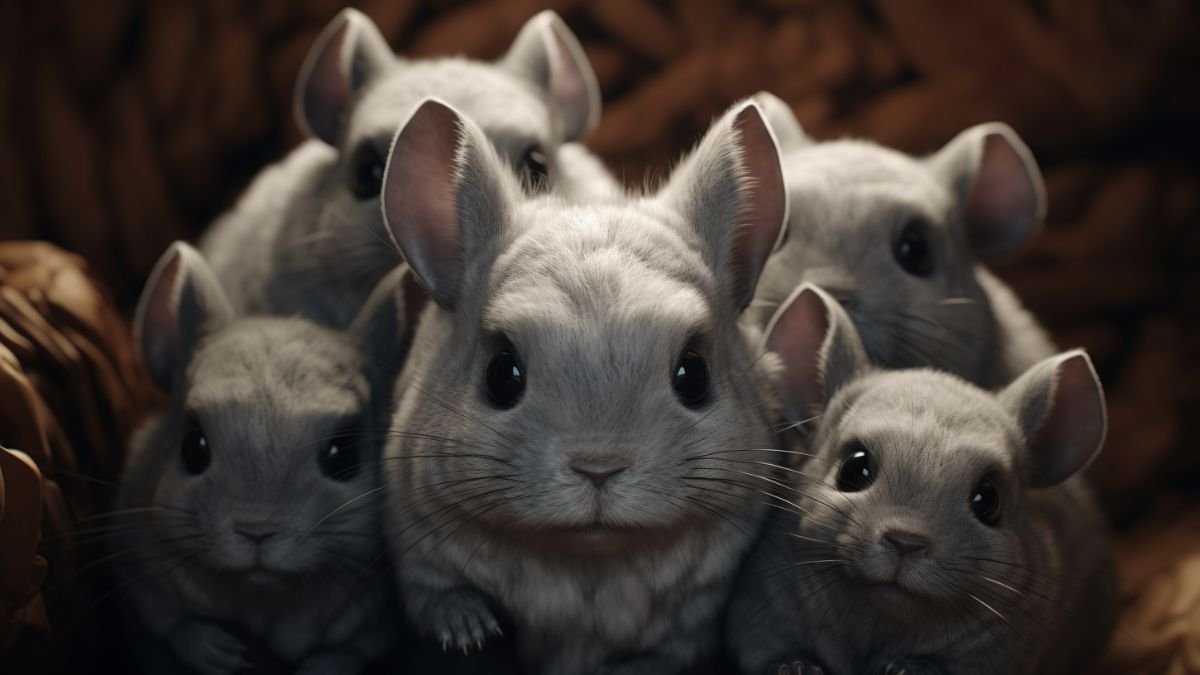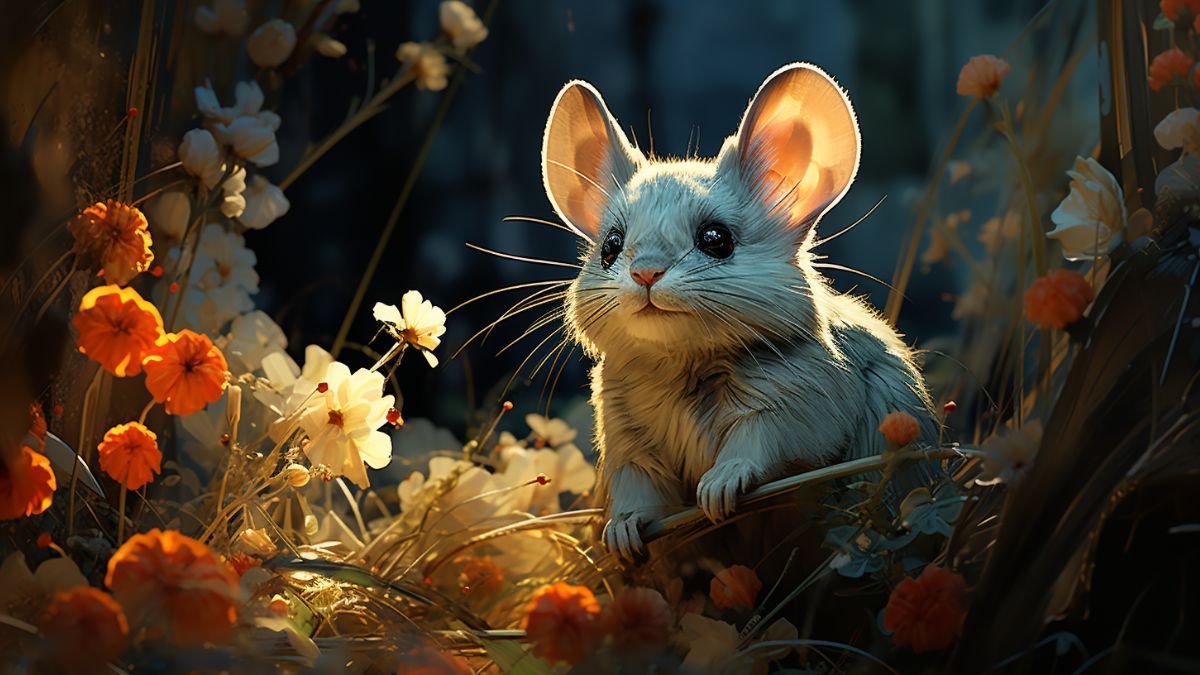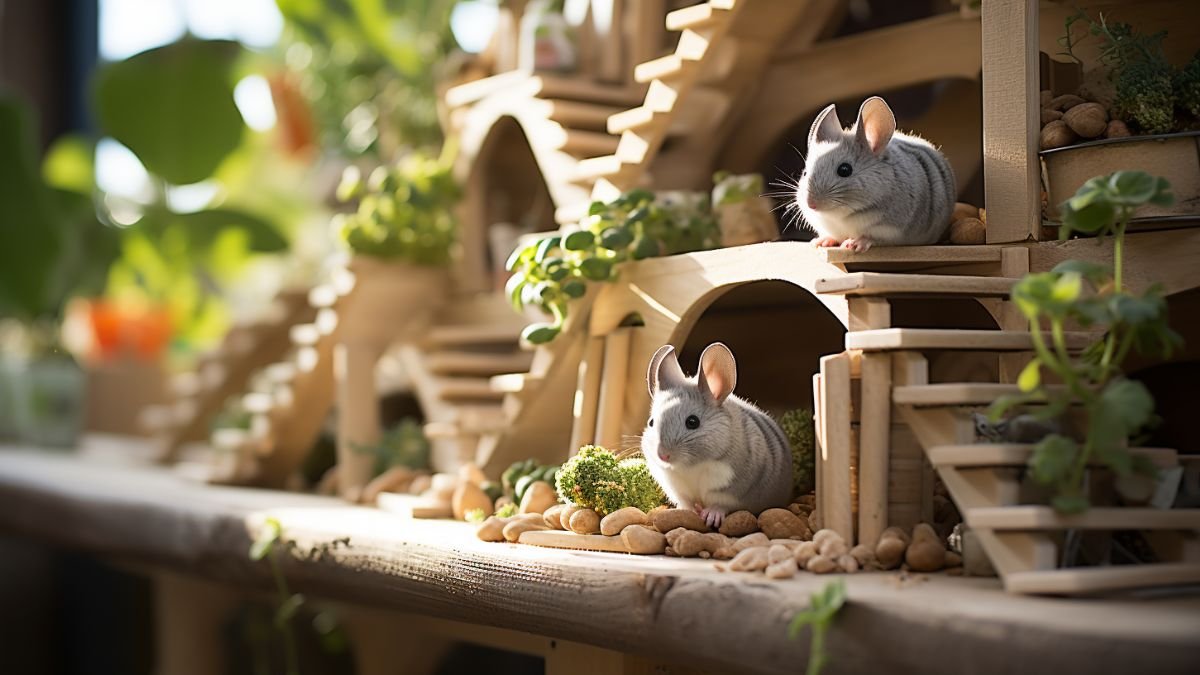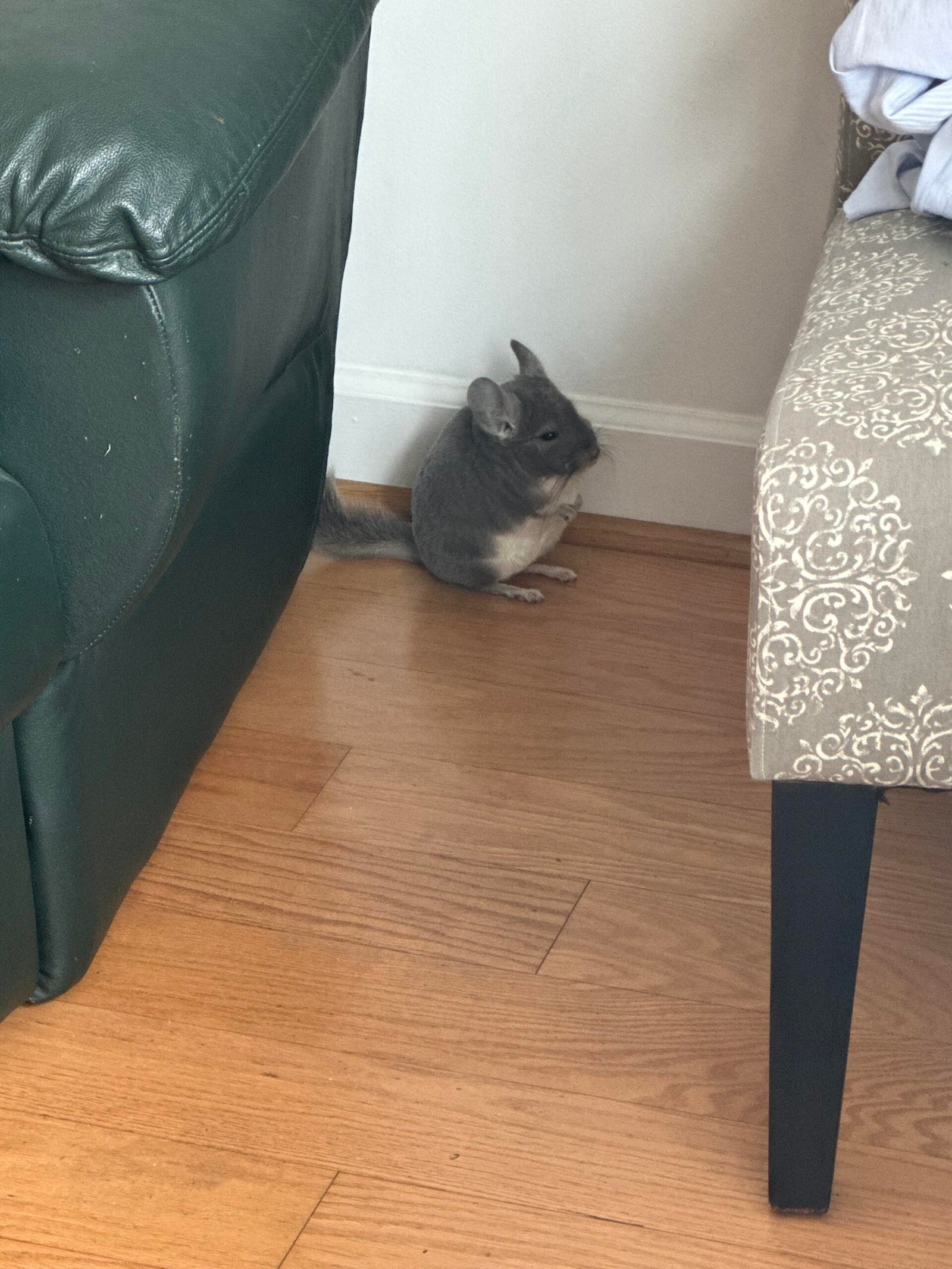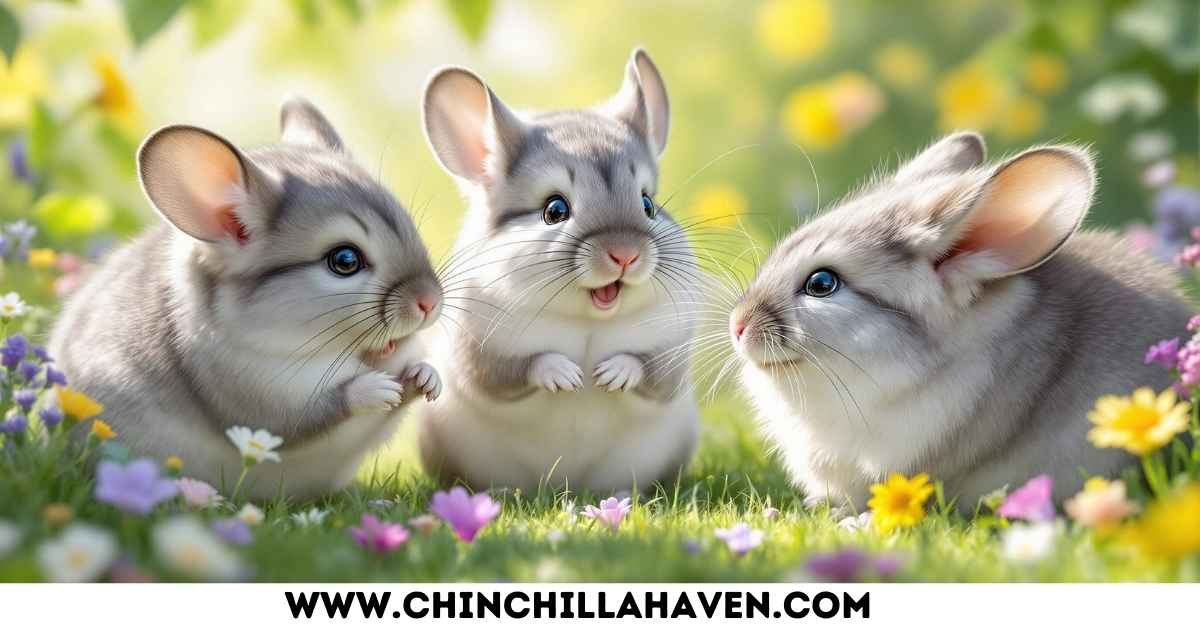
Chinchillas are beloved for their soft fur, playful personalities, and unique care needs. But if you’re considering adopting one, you might be wondering: How long do chinchillas live? The answer depends on several factors, including their environment, diet, and overall care.
In this guide, we’ll explore the lifespan of chinchillas in the wild and captivity, factors that influence their longevity, and actionable tips to help your furry friend live a long, healthy life. Whether you’re a first-time owner or a chinchilla enthusiast, this article will provide everything you need to know.
How Long Do Chinchillas Live?
The lifespan of a chinchilla varies significantly depending on whether they live in the wild or in captivity:
- In the wild, chinchillas typically live 8 to 10 years. Their lives are often cut short by predators, harsh climates, and limited resources.
- In captivity, chinchillas can live 10 to 20 years, with some even reaching 22 years under optimal care. The oldest recorded chinchilla lived an impressive 28 years and 94 days (source).
This stark difference highlights the importance of a safe, controlled environment and proper care for chinchillas in captivity. If you’re planning to create a safe and enriching space for your chinchilla, check out our guide on how to build a chinchilla cage.
Factors That Affect a Chinchilla’s Lifespan
Several factors influence how long a chinchilla will live. Understanding these can help you provide the best care possible.
1. Diet and Nutrition
A balanced diet is crucial for a chinchilla’s health and longevity. In the wild, chinchillas eat grasses, seeds, and vegetation. In captivity, their diet should mimic this as closely as possible.
- Hay: High-quality hay, such as timothy hay, is essential for their digestive health and helps prevent dental issues.
- Pellets: Use chinchilla-specific pellets that are free from fillers and artificial additives. Learn more about the best pellet options for chinchillas.
- Water: Fresh, clean water should always be available.
- Avoid sugary treats: Fruits, vegetables, and sugary snacks can upset their sensitive digestive systems. For example, while some fruits are safe, you might wonder, can chinchillas eat grapes?
A poor diet can lead to obesity, dental problems, and gastrointestinal issues, all of which can shorten a chinchilla’s lifespan. For more details on chinchilla nutrition, visit Vet Explains Pets.
2. Housing and Environment
Chinchillas are native to the Andes Mountains, where they thrive in cool, dry climates. To replicate this environment in captivity:
- Temperature: Keep their habitat between 60°F and 70°F (15°C to 21°C). Temperatures above 75°F (24°C) can cause heatstroke, which is life-threatening (source).
- Cage: Provide a spacious, multi-level cage with plenty of room for climbing and jumping. Chinchillas are active animals and need space to move. Learn more about how often to clean a chinchilla cage to maintain a healthy environment.
- Dust baths: Chinchillas cannot bathe in water due to their dense fur, which traps moisture and can lead to fungal infections. Instead, they need regular dust baths to keep their fur clean and healthy.
A clean, safe, and stimulating environment can significantly extend your chinchilla’s life.
3. Genetics
Genetics play a significant role in a chinchilla’s lifespan. Reputable breeders focus on maintaining healthy bloodlines, which can reduce the risk of inherited health issues. If you’re adopting a chinchilla, ask about its lineage and any known health concerns.
4. Veterinary Care
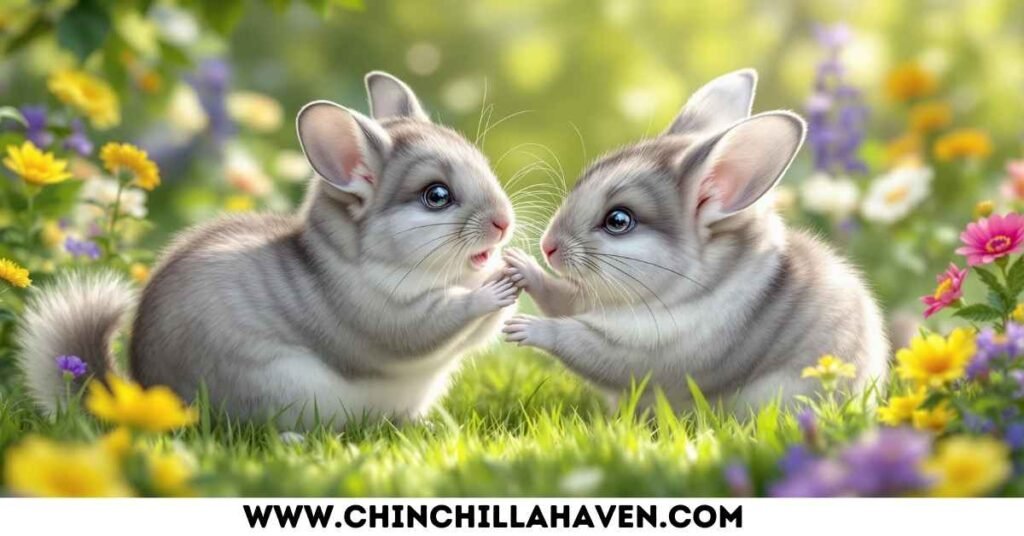
Regular check-ups with an exotic animal veterinarian are essential. Common health issues in chinchillas include:
- Dental disease: Overgrown teeth can cause pain and difficulty eating.
- Respiratory infections: Often caused by poor ventilation or high humidity.
- Gastrointestinal stasis: A potentially fatal condition where the digestive system slows down or stops.
Preventative care and prompt treatment can make a significant difference in your chinchilla’s lifespan. For more on chinchilla health, visit PangoVet.
5. Exercise and Mental Stimulation
Chinchillas are intelligent and active animals. Without enough exercise and mental stimulation, they can become bored, stressed, or overweight. Provide:
- Toys: Chew toys and climbing structures keep them entertained and help wear down their teeth.
- Playtime: Allow your chinchilla to explore outside their cage in a safe, supervised area. Curious about their physical abilities? Discover how high chinchillas can jump.
- Social interaction: Chinchillas are social creatures and thrive on interaction with their owners or other chinchillas.
Real-Life Examples of Long-Lived Chinchillas
To illustrate the potential for chinchillas to live long lives, here are a few real-life examples:
- Radar: Lived to 19 years thanks to a consistent diet, regular dust baths, and a stress-free environment.
- Dusty: Reached 21 years with the help of a spacious cage, regular vet visits, and plenty of exercise.
- Luna: Lived to 18 years and was known for her playful personality. Her owner ensured she had daily interaction and mental stimulation.
These examples show that with proper care, chinchillas can live well beyond the average lifespan.
Tips to Help Your Chinchilla Live Longer
If you want your chinchilla to live a long and happy life, follow these tips:
- Provide a balanced diet: Stick to high-quality hay and pellets, and avoid overfeeding treats.
- Maintain a safe environment: Keep their cage clean, cool, and well-ventilated.
- Schedule regular vet visits: Early detection of health issues can save your chinchilla’s life.
- Offer plenty of exercise: Allow your chinchilla to explore and play in a safe area.
- Monitor for signs of illness: Watch for changes in behaviour, appetite, or droppings, and consult a vet if needed.
Why Do Chinchillas Live Longer in Captivity?
Chinchillas in captivity benefit from a controlled environment, consistent food supply, and protection from predators. In the wild, chinchillas face numerous challenges, including:
- Predation: Wild chinchillas are preyed upon by foxes, birds of prey, and other predators.
- Harsh climates: The Andes Mountains can be unforgiving, with extreme temperatures and limited resources.
- Human activity: Habitat destruction and hunting have further reduced wild chinchilla populations.
By providing a safe and nurturing environment, pet owners can help their chinchillas live much longer than their wild counterparts.
Final Thoughts: How Long Can Your Chinchilla Live?
Chinchillas are remarkable animals with the potential for long, fulfilling lives when given the proper care. By focusing on their diet, environment, and overall well-being, you can ensure your chinchilla thrives for many years to come.
Whether you’re a seasoned chinchilla owner or considering adopting one, remember that these small creatures rely on you for their health and happiness. With love, attention, and the right care, your chinchilla could become a cherished companion for up to two decades—or even longer.
For more tips on chinchilla care, explore our post on how fast chinchillas can run and other fascinating facts about these adorable creatures.

